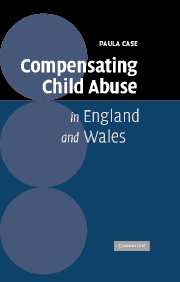5 - Limitation Periods
Published online by Cambridge University Press: 19 July 2009
Summary
… delay will make it more difficult for the legal procedures themselves to vouchsafe a just conclusion – evidence may have disappeared and recollections become increasingly unreliable. Speedy rough justice will, therefore, generally be better justice than justice worn smooth and fragile with the passage of years.
The limitation framework
At the time of writing, the law of limitation as it affects abuse claims is poised for reform. If reform occurs, it will most likely take the form of a House of Lords ruling in an appeal from the A v Hoare judgment or Parliament's overdue enactment of a Bill implementing the Law Commission's recommendations of 2001. If reform has been effected by the time of publication, much of the discussion surrounding Stubbings v. Webb which follows will be of largely historical interest, but much of what is examined under the heading ‘non-battery claims’ will become equally relevant to actions in battery against the perpetrators of abuse.
Whatever the current state of the law, the popularity and potency of the limitation ‘defence’ to child abuse litigation has profound implications for claims in this area. It is undoubtedly the effectiveness of our limitation regime in pre-empting most civil litigation concerning abuse from ever reaching a full hearing that is responsible for the stunted development of the law covered in this book.
- Type
- Chapter
- Information
- Compensating Child Abuse in England and Wales , pp. 244 - 284Publisher: Cambridge University PressPrint publication year: 2007

